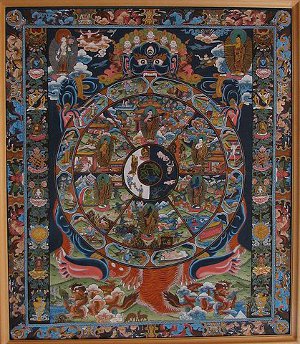
In Western religion we seek to attain immortality; in Eastern religion we seek to escape it.
“The secret of religious enlightenment, revealed to the Buddha as he sat beneath the Bo tree, is the suppression of desire, a systematic elimination of all our attachments to the world,” writes Gordon Graham in his Eight Theories of Ethics. “In such turning away comes moksha or release and eventually, for it may take more than one life to achieve it, entry to Nirvana — a term which captures both the idea of nothingness and of heaven. The Buddhist ideal, then, finds supreme value in personal extinction. (Whether this amounts to total extinction is a further matter.) In so doing it wholly discounts subjective values because it is these, after all, that keep us chained to the unending cycle of birth, death and rebirth.
“It is of great interest to note that, while Western minds are accustomed to think of religious faith as entailing the belief and hope that we will be saved from eternal death and live for ever, the belief of Eastern religions is that, other things being equal, we do live for ever and it is from this dreadful fate that we must look to spirituality to save us.”
